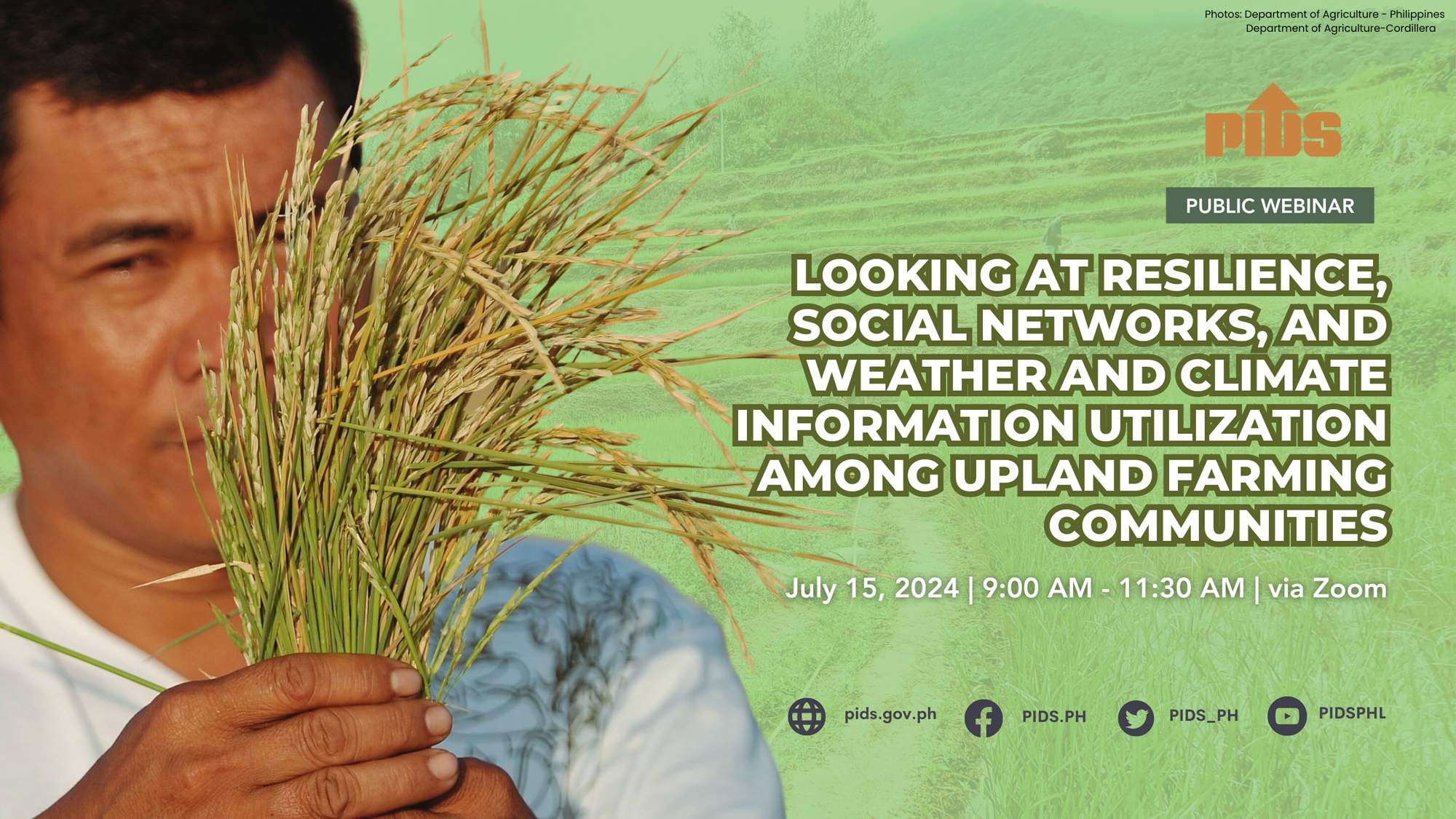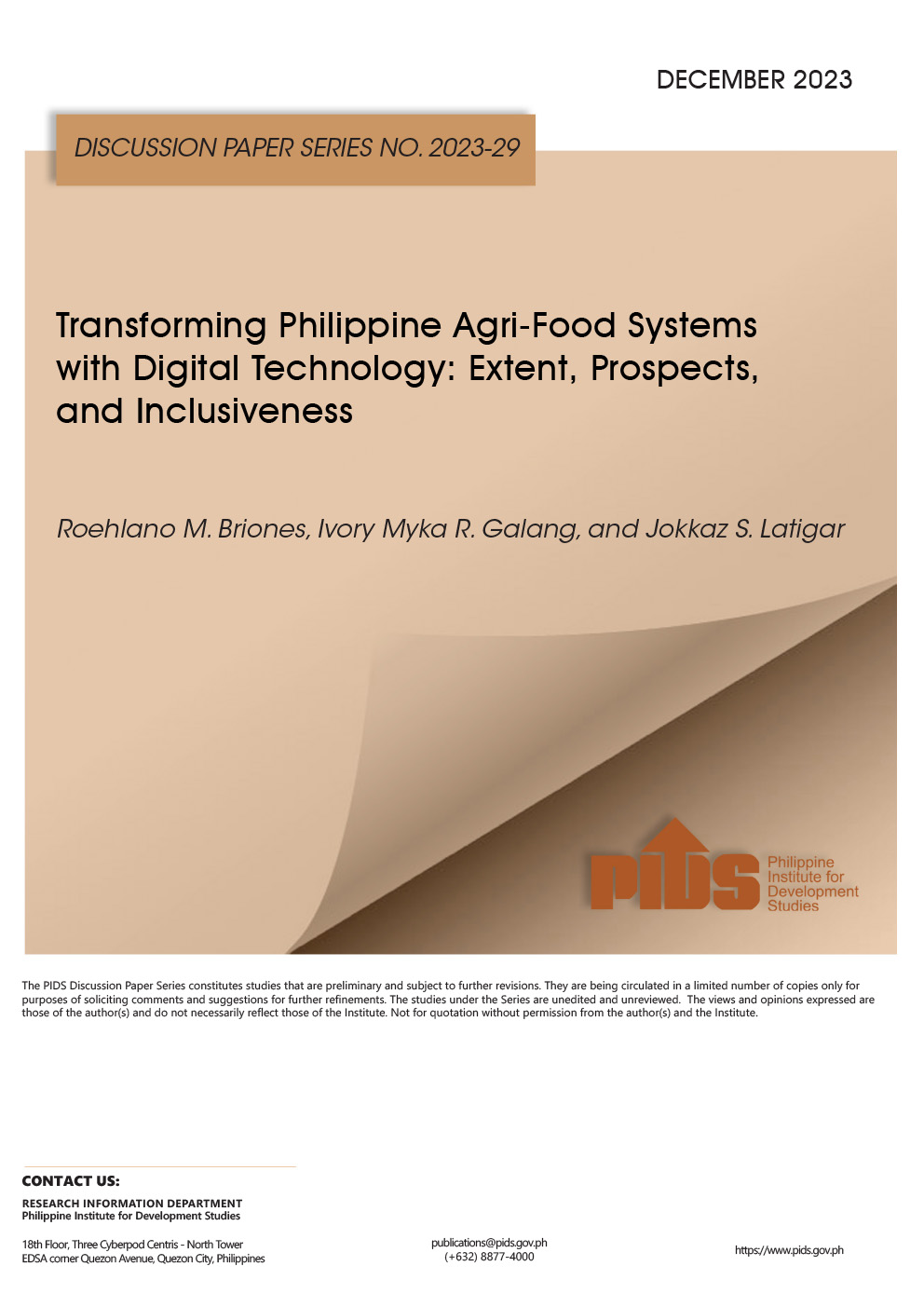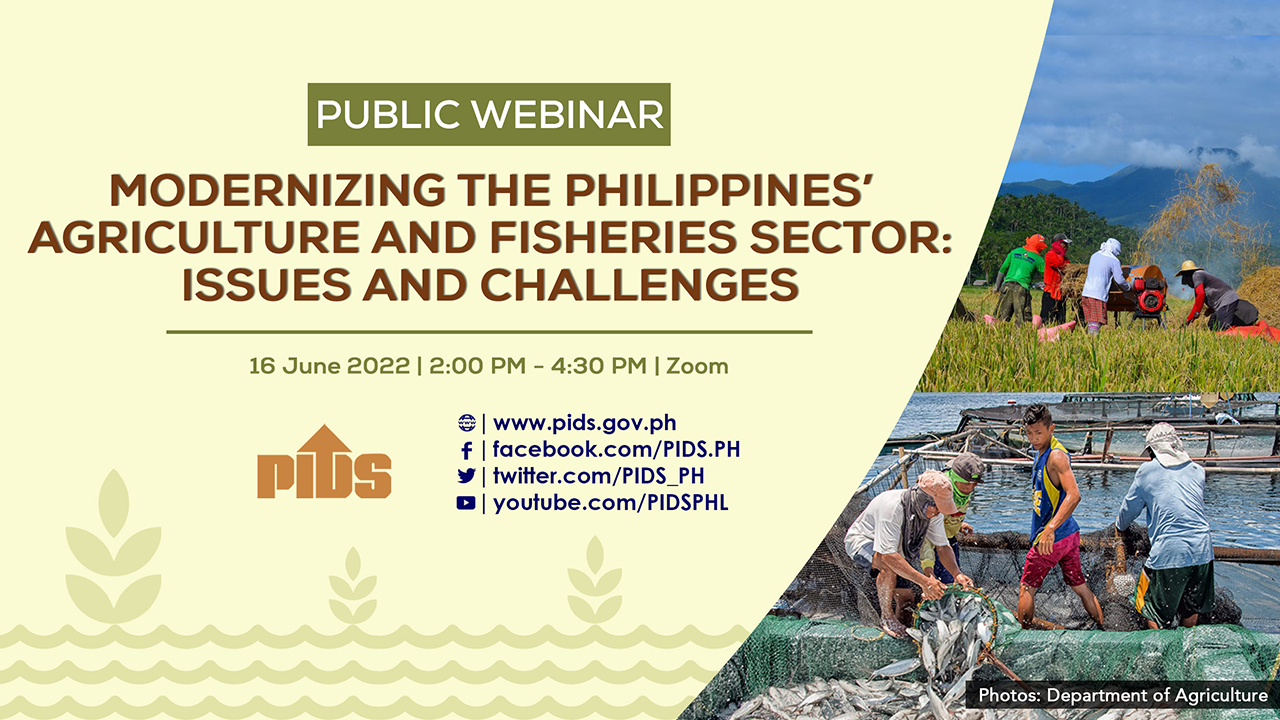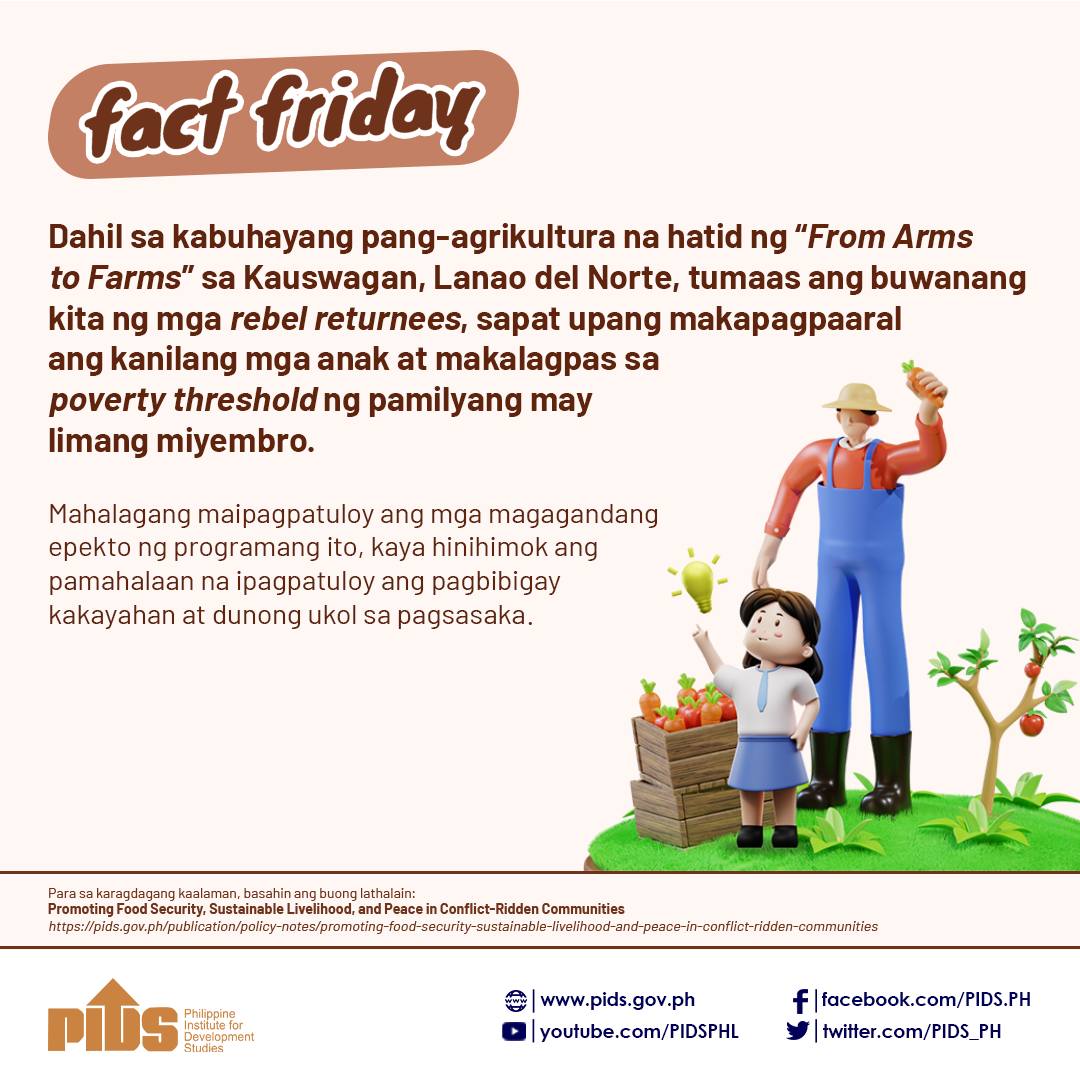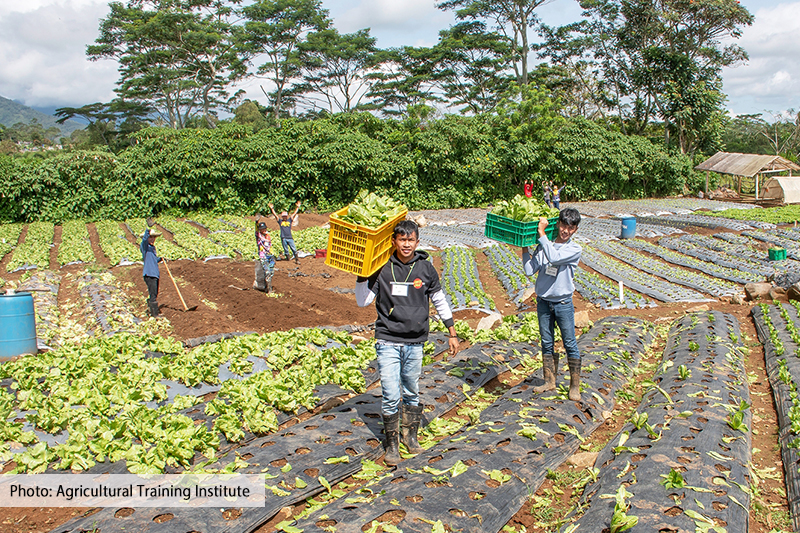
Targeted interventions are crucial in enhancing farm productivity and strengthening upland farmers’ capacity to withstand against and recover from various shocks, including natural disasters and economic disruptions.
This surfaced at a recent public webinar organized by the Philippine Institute for Development Studies (PIDS) in line with the National Disaster Resilience Month. The event featured the study, “Analyzing the Resilience of Farming Households in Upland Areas” authored by PIDS Senior Research Fellow Aubrey D. Tabuga, Research Specialist Anna Rita P. Vargas, and Research Analyst Madeleine Louise S. Baiño.
In her presentation, Tabuga noted that farming households in Atok, Benguet—the focus of their study—are predominantly headed by males, with an average size of four members. Findings suggest that resilience can be bolstered through the household members’ increased knowledge, risk awareness, and adoption of new technologies. The crucial role of these factors was also affirmed in managing shocks and applying lessons learned in disaster preparedness, response, and recovery.
Tabuga further advocated for more nuanced and comprehensive interventions to fully understand and address the complexities of resilience. This is particularly true when referring to people in the bottom income groups, peripheral social network actors, and those who do not own any means of transportation. The importance of thorough data collection and surveys was also stressed to pinpoint the specific needs of these households, and assess the types, severity, and impacts of disasters they experience.
Noting the need for information interventions and mobile access, Agricultural Training Institute Cordillera Administrative Region Information Officer Adrian Chris Velasco affirmed the necessity of improved mobile and internet connectivity for extension workers. This is crucial for disseminating climate information and easing the challenges faced in delivering extension services. But the ownership of mobile devices like radios, basic phones and smartphones, varies among households, highlighting the importance of alternative means of communication particularly in an environment where mobility is severely restricted.
Institute of Highland Farming and Agroforestry Systems of Benguet State University (BSU) Director Valentino Macanes emphasized the pivotal role of technology transfer in enhancing farm productivity and resilience. Advocating for effective communication and information exchange between farmers and extension workers, Macanes expressed hope that farming households would engage in better information sharing and collective action especially during crises. He also remarked that having a wide connection of people will provide the chance to better spread climate and weather-related information.
Experts explained that the identified digital and infrastructural gaps can be partially bridged through localized strategies and collaborations, especially given the potential and current efforts of upland farmers and extension workers to share ideas, experiences, and strategies for coping with and recovering from disasters.
Watch the recording of the webinar at https://bit.ly/pidslive071524. ###

